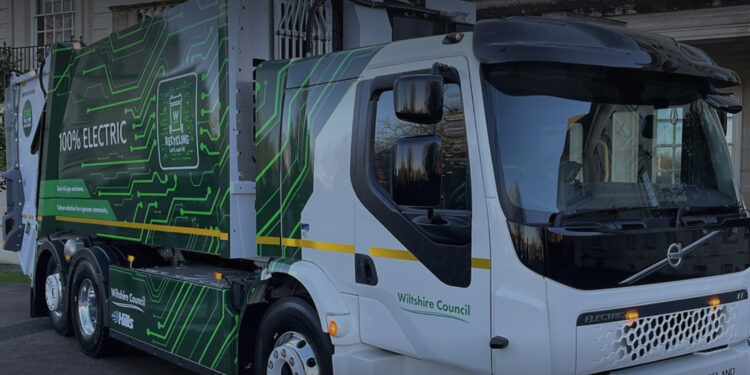Wiltshire Council is taking a bold step toward a sustainable future with the introduction of a state-of-the-art electric bin lorry, the Volvo FE Low Entry Cab RCV. As the first of its kind in the UK, this innovative vehicle will soon be collecting waste in Calne and Chippenham, setting a precedent for councils across the nation.
The transition to electric vehicles (EVs) is not just a symbolic gesture; it represents a practical response to the twin challenges of environmental sustainability and economic efficiency. The new electric refuse collection vehicle (RCV) comes with a hefty price tag, costing 50% more than its diesel counterpart. However, Wiltshire Council is confident that the long-term benefits—both financial and environmental—will far outweigh the initial investment.
Environmental Impact
The environmental advantages of this electric bin lorry are significant. Unlike traditional diesel models, which emit harmful greenhouse gases and particulate matter, the electric lorry operates without tailpipe emissions. This aligns with the UK’s broader commitment to achieving net-zero carbon emissions by 2050.
Air quality in towns like Calne and Chippenham is expected to see an improvement as the lorry begins its rounds. Noise pollution, another often-overlooked issue with diesel refuse trucks, will also be drastically reduced. The quieter operation of the electric lorry is particularly beneficial in residential areas, where early morning collections can be disruptive.
Economic Considerations
The higher upfront cost of the vehicle—50% more than a diesel equivalent—might raise eyebrows. However, the council is optimistic that the savings in running and maintenance costs will justify the expenditure over time. Electric vehicles are generally more energy-efficient than their diesel counterparts, and with lower fuel costs and fewer moving parts, they tend to require less maintenance.
Additionally, the government’s push for greener technologies often comes with financial incentives, such as grants or subsidies, which may offset some of the initial investment. Wiltshire Council’s trial aims to gather data on these cost-saving measures, providing a robust case for wider adoption of electric refuse vehicles.
Community and Industry Implications
The introduction of this electric bin lorry marks a significant milestone in local governance and environmental responsibility. By piloting this initiative, Wiltshire Council is not only contributing to the fight against climate change but also setting a benchmark for other councils to follow. The success of this trial could catalyze a broader transition to electric vehicles within the waste management industry.
Local residents in Calne and Chippenham will play a crucial role in the success of this trial. Their feedback and support can influence the council’s decision to expand the use of electric RCVs to other areas.
Looking Ahead
The trial of the Volvo FE Low Entry Cab RCV is a testament to Wiltshire Council’s commitment to innovation and sustainability. By embracing cutting-edge technology, the council is tackling the dual challenges of reducing environmental impact and managing public funds responsibly.
As this pioneering electric bin lorry begins its journey, all eyes will be on Wiltshire to see if this venture delivers on its promise. If successful, it could pave the way for a cleaner, quieter, and more cost-effective approach to waste management across the UK.








